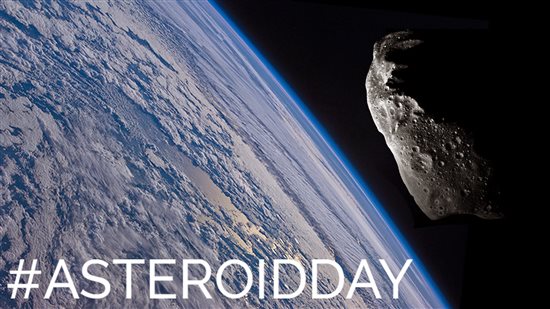 The day is finally here! Today, on the 107th anniversary of the Tunguska event, an explosion caused by an incoming asteroid or comet that flattened more than 2,000 square kilometers of forest in central Siberia, people around the world are participating in Asteroid Day. Asteroid Day global movement is a global day of awareness and public education about asteroids. At science centers and schools, homes, and community centers around the world, including in England, Spain, Italy, Brazil, Canada, Greece, India, and the U.S., events will be held to learn about the origin and composition of asteroids and how to detect and map their trajectories in our solar system to protect us from any potential harmful impact with Earth and many more subjects relating to asteroids. And there are tons of ways to participate.
The day is finally here! Today, on the 107th anniversary of the Tunguska event, an explosion caused by an incoming asteroid or comet that flattened more than 2,000 square kilometers of forest in central Siberia, people around the world are participating in Asteroid Day. Asteroid Day global movement is a global day of awareness and public education about asteroids. At science centers and schools, homes, and community centers around the world, including in England, Spain, Italy, Brazil, Canada, Greece, India, and the U.S., events will be held to learn about the origin and composition of asteroids and how to detect and map their trajectories in our solar system to protect us from any potential harmful impact with Earth and many more subjects relating to asteroids. And there are tons of ways to participate.
First and foremost, please join me in signing the 100x Declaration. It's a call to expand our inventory of asteroids in the inner solar system by a factor of 100. You can sign the declaration here.
I've also written a piece for Asteroid Day explaining why such a declaration is important. You can read about the threat facing our planet here.
If you want to attend an Asteroid Day event in your area, there's still time! You can find a list of them here.
And if you can't get to one of those, multiple events are being broadcast on the Internet, including the event at the California Academy of Sciences (one at 1 p.m. EDT and the other at 5 p.m. EDT) as well as live streams from the Virtual Telescope Project and SLOOH. Get all the details on those video feeds here.
I hope you'll join us for today's activities. The asteroid threat is real. It would be gross negligent to avoid completing as thorough a survey as possible of all the space rocks in Earth-crossing orbits and understanding other small bodies farther out in the solar system that could come our way.
It is an insurance policy for planet Earth. We should not be alarmed as concerned human beings. But we should be determined, informed, and on the clock, keeping track of solar system bodies and their movements. One day these debris will interact again in a big way with our planet. Perhaps we will discover incoming asteroids and be able to divert their course before disaster strikes. We surely will want to be ready when that day comes. Anything less would be a reckless misuse of the knowledge our species has worked too hard to gain.